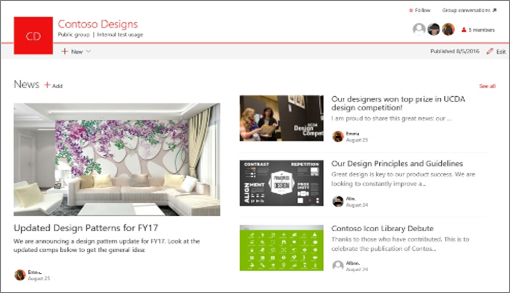Not known Incorrect Statements About International News Online
Not known Incorrect Statements About International News Online
Blog Article
Excitement About International News Online
Table of ContentsInternational News Online Can Be Fun For AnyoneInternational News Online Things To Know Before You Get ThisTop Guidelines Of International News OnlineThe Greatest Guide To International News OnlineThe Facts About International News Online Revealed
The platform's name adjustment took place in July 2023.) Some social media sites sites in spite of having fairly little general audiences stick out for having high shares of individuals who routinely most likely to the site for information. About half of individuals on X (53%) obtain news there. On the other hand, only 15% of Snapchat customers routinely obtain information on the application.
, Sept
When asked whether social media is a great or negative thing for democracy in their nation, a mean of 57% throughout 19 nations say that it is a good point. In practically every country, close to fifty percent or more state this, with the belief most usual in Singapore, where about three-quarters believe social media is a good point for freedom in their nation.
And in the united state, just around a 3rd think social media declares for freedom the tiniest share among all 19 nations surveyed. In 8 nations, those that think that the political system in their nation enables them to have an influence on national politics are also most likely to claim that social media is a great thing for democracy.
Those that check out the spread of false details online as a significant risk to their country are less likely to claim that social media is a good idea for democracy, compared with those who check out the spread of false information online as either a minor risk or not a danger in any way.
International News Online Things To Know Before You Buy
This pattern is obvious in eight other nations too. Views likewise differ by age. Older grownups in 12 nations are less likely to claim that social media is an advantage for democracy in their nation when compared to their more youthful equivalents. In Japan, France, Israel, Hungary, the UK and Australia, the gap in between the youngest and oldest age goes to the very least 20 percent factors and varies as high as 41 factors in Poland, where virtually nine-in-ten (87%) more youthful adults claim that social networks has been a good idea for democracy in the nation and just 46% of grownups over 50 say the very same.
Across the 6 problems checked, few have a tendency to say they see no modifications as a result of boosted connectivity rather seeing points changing both favorably and negatively and usually both at the exact same time (International News Online). An average of 84% say technical connectivity has made people simpler to adjust with false details and rumors the most amongst the six problems examined
Certainly, in a lot of nations, those that think social media sites has made it less complicated to manipulate people with misinformation and reports are also more probable to assume that social networks has made people extra notified. When it comes to national politics, the net and social media are generally viewed as turbulent, with a mean of 65% claiming that individuals are currently extra split in their political viewpoints.
Indicators on International News Online You Need To Know
This sense of risk is associated with the prevalent belief that individuals today are currently much easier to manipulate with incorrect details and rumors thanks to the net Recommended Reading and social networks. Around half or more in every country checked shares this sight. And in locations like the Netherlands, Australia and the UK, around nine-in-ten see individuals as more manipulable.
As an example, in South Korea, 90% of those under age 30 state social media makes individuals simpler to adjust, compared with 65% of those 50 and older. (Remarkably, U.S.-focused research has actually discovered older grownups are more probable to share misinformation than more youthful ones.) Individuals with even more education are likewise commonly more likely than those with much less education and learning to say that social media has led to people being less complicated to manipulate.

International News Online - Truths
In Sweden, Japan, Greece and the Netherlands, around eight-in-ten or even more share this view, while in Malaysia, a smaller majority (56%) says the same. More youthful grownups often tend to see social media making individuals more informed than older grownups do. Older grownups, for their component, do not always see the web and social media sites making people less informed about what's occurring in their country; instead, they're rather extra likely to explain these platforms as having little effect on people's information degrees.

Report this page